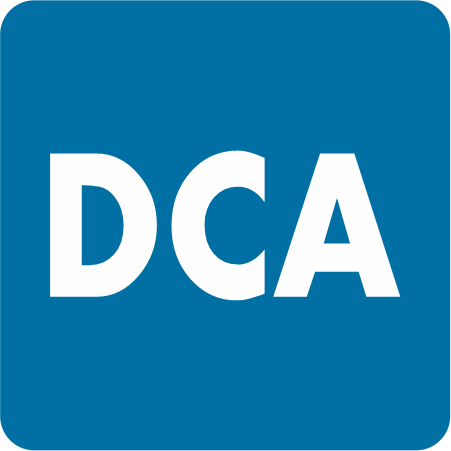First Aid Medical Facilitator

Table of Contents
Here is complete details about the course, contents, duration, eligiblity and other important aspects. Every student will get the ‘Student Kit’. You can see the list of facilities in Student KIt below.
About Course: First Aid Medical Facilitator
online fitness courses free with certificate,free online fitness courses with certificates,health and fitness courses online free,best online fitness courses,online fitness courses in india,online fitness certification,online nutrition courses,free online strength and conditioning courses,
ISDM Course Plan
| First Aid Medical Facilitator | |
| Course Code: FAMEDF01 | Eligibility: 8TH |
| Duration in Months: 1.5 Months | Duration in Hours: 100 |
| Minimum Age: 16 Year | |
Pre-Requisite
- Candidate should have basic communication skills, reading and writing skills
- Candidate should have writing skills in English and local language
- Candidate must have enthusiasm to become First Aid Facilitator
Basic
The Assistant Medical laboratory technicians perform complex tests for diagnosis, treatment, and prevention of disease. These professionals are responsible for supporting and assisting lab technician/doctors/ scientists in their day to day working in a variety of roles. They function as the main support to biomedical scientists in pathology laboratories.
| Subject 1
|
Get involved in First Aid Treatment
· Introduction to the Concept of First Medical Facilitator · Objective of the training program
|
| Subject 2
|
First Aid in Emergency
· Principles and Practices of First Aid · Assessment in First Aid · Structure and Function of body · Basic life support (resuscitation and CPR) · First aid in emergencies · First aid kit and use of materials · Triage · Safe handling and transportation of patients |
| Subject 3 | Public Health in Emergencies
· Introduction to Public Health in Emergencies · Communicable diseases in emergencies/epidemic control · Vector borne diseases · Water borne diseases · Air borne diseases · STI including HIV and other sexual and reproductive health issues · Emergency health assessment – What it is, data collection · Food security and nutrition in emergencies · Health in recovery programming |
| Subject 4 | Using Water, Sanitation and Hygiene Support
· Emergency Water Supply o Introduction to Water Supply o Water Supply Components o WATSAN emergency response Tool · Household Water Treatment o Why Household Water Treatment and Safe Storage? o Methods of Water Treatment o Safe Storage o Training o Follow up Training · Emergency Sanitation o Excreta Disposal o Solid Waste Management o Waste water management (drainage) o Vector Control o Hygiene promotion in emergency o Why do we need hygiene promotion? o Selection and distribution of Hygiene kits o How do we do hygiene promotion in emergency? o Hygiene promotion box |
| Subject 5 | Giving Psychosocial Care
· Introduction to Psychosocial support in RCRC Movement o Introduction to Psychosocial support o What is psychosocial support (the definition)? o What is psychosocial wellbeing? o Contextualization of services o Why are psychosocial services needed? · Basics of providing psychosocial support services o Understand the psychological needs people may have during an emergency o Identification of the affected population in need of psychosocial support services o Providing services as per the needs of the people (Assessment) · Providing psychosocial support by the FMR during the immediate phase · Community based psychosocial support · Psychological First Aid and Supportive Communication · Essential things to keep in mind while providing Psychosocial support in a community o Who can provide psychosocial support services o Helping the helper (essentials for the FMR providing psychosocial support services) · Dos and don’t for volunteers providing psychosocial support services |
| Subject 6 | Structuring Family Links
· Restoring Family Links o Introduction to terms like Restoring Family Links, Tracing and Family News Services o What is RFL? o RFL project in India o What is the need of RFL in disasters? · RFL experience from the field o Example of Leh cloud burst/Sikkim earth quake o Lessons learned from the Field · Planning RFL activity o Preparation for RFL o Discussion on plan |
| Subject 7 | Management of Dead bodies
· Introduction and Conceptual understanding · What is the need for dead bodies’ management? · What formats are to be completed as part of dead bodies’ management? · Experience sharing from the field |
| Subject 8 | Crisis Management
· The basics of Crisis Management o The concept of crisis o The concept of Hazard o The concept of Vulnerability o The concept of Disaster o The concept of Risk o The concept of Capacity o The concept of Mitigating Impact o Relation between different concept in a disaster situation · Different Crisis situation and how to respond to different Crisis situations o Earthquake o Floods o Flash-floods o Land Slide o Tsunami o Fire Accidents o Conflict o Mass Casualty o Disease Outbreak · Assessment in emergencies o Understanding Needs Assessment o Types of Needs Assessment and Assessment Process o Participatory Needs Assessment Tools · Roles, Responsibilities and Management of CFMR · Coordination mechanisms |
| Subject 9 | Planning, Monitoring and Reporting & Volunteer Management
· Basics of planning · Contingency Planning · Basics of Monitoring · Monitoring by FMR · What to monitor in a crisis situation · Why there is a need for monitoring and usage of data? · What is reporting and methods of reporting? · The basics of Volunteer Management in an Emergency |
Assessment Instructions
- Assessment mode is online.
- Final assessment will be based on objective type/true-false/matching type questions.
- Minimum Passing Marks is 50%
- Student will get 3 credits for re-attempt.
- Student will get a Certificate of Completion after pass online assessment.
- Student must have to carry the admit card in exam, issued by the Auth. Training Center.
- Result will be declared in 24 hours to 1 week after examination.
- Student can the detailed answer sheet of examination on request.
Every Student will get
- Admission Form and Prospectus
- Identity Card
- ISDM E-Library Access
- Free Registration worth Rs. 2500/- on Job Portal JobFixer for Job Placements
- Online Classes/Video Lectures with lifetime access (Only in some courses)
- Certificate of Completion






